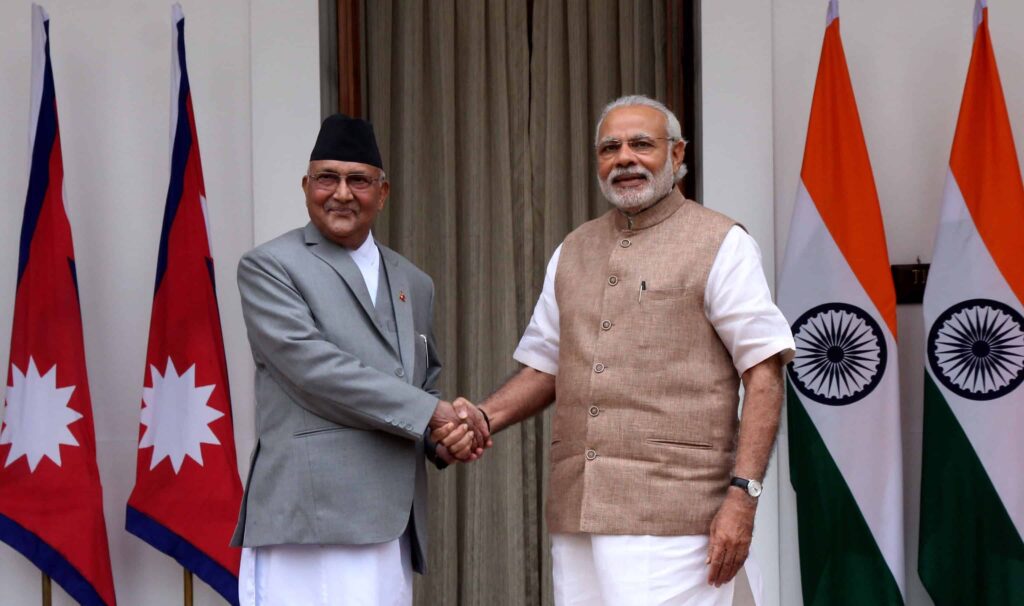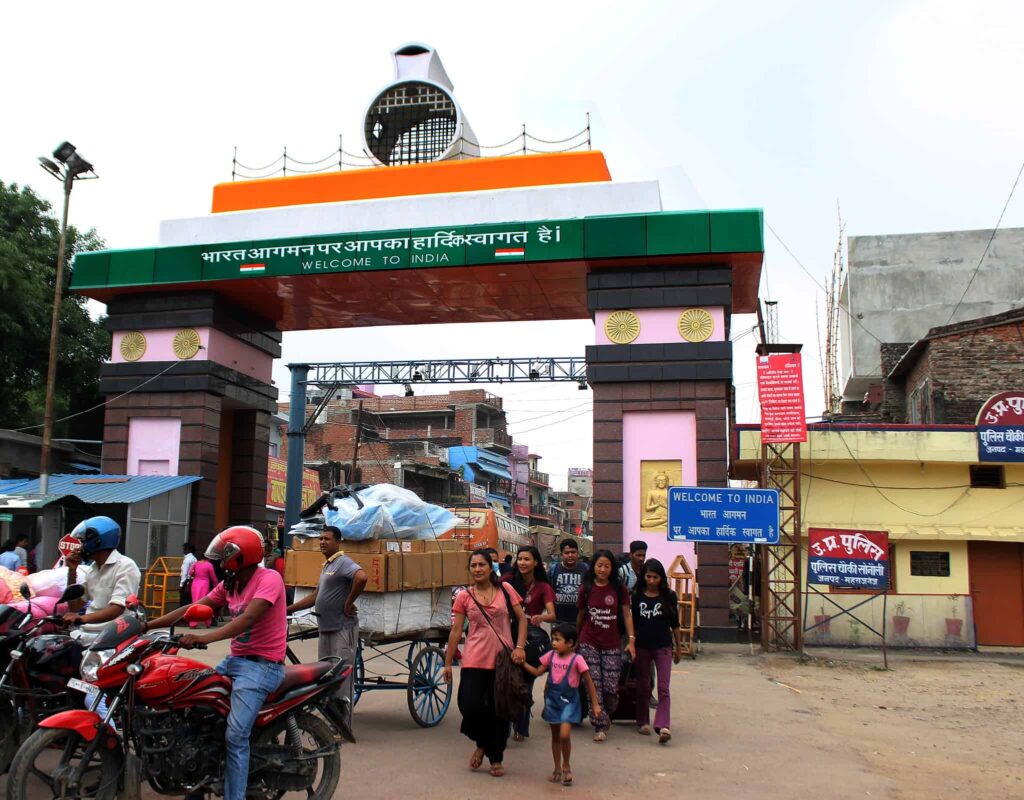10 Important Points on India Nepal Relations UPSC: Prospects and Challenges
India Nepal Relations UPSC
India and Nepal are two neighboring countries in South Asia that share a unique relationship based on historical, cultural, and geographical ties. The two countries have a long-standing partnership that goes back to several centuries, and their bilateral relations have been shaped by a complex interplay of various factors. This article will provide an overview of the India-Nepal relationship, including historical background, current scenario, challenges, and prospects.


Historical Background
India and Nepal share a long history of political, cultural, and religious connections that date back to ancient times. The two countries share a common cultural heritage and have close cultural, social, and economic ties. India and Nepal have been linked through various cultural and religious exchanges, including Buddhism and Hinduism. Nepal was a part of the larger Indian subcontinent until the mid-18th century when it became an independent kingdom.
India and Nepal’s relationship during the British rule in India was marked by a special status given to Nepal as a buffer state. The British recognized Nepal’s independence and sovereignty, and the Nepalese Gurkha soldiers were enlisted in the British Army. After India’s independence in 1947, Nepal was one of the first countries to recognize India’s sovereignty, and the two countries signed a Treaty of Peace and Friendship in 1950.
Current Scenario
The India-Nepal relationship today is multifaceted, encompassing a wide range of areas, including political, economic, cultural, and security cooperation. The relationship has had its ups and downs, with various challenges and controversies over the years. However, despite these challenges, the two countries have maintained a cordial relationship and have been able to address their differences through constructive dialogue and cooperation.
Political Relations
India and Nepal share strong political ties, with regular high-level visits between the two countries. Both countries have an open border, and Nepalese citizens enjoy the freedom to work and travel in India without any restrictions. The two countries have several institutional mechanisms to address their political differences, including the Joint Commission and the Joint Working Group on Water Resources.
Economic Relations
Economic cooperation between India and Nepal has been an important aspect of their relationship. India is Nepal’s largest trading partner, and Nepal’s economy is heavily dependent on India for its imports and exports. The two countries have a bilateral trade agreement that allows for duty-free access to each other’s markets for several products. Indian investment in Nepal has been increasing in recent years, with Indian companies investing in various sectors such as hydropower, infrastructure, and tourism.
Cultural Relations
Cultural ties between India and Nepal are strong, with both countries sharing a common cultural heritage. Nepal is a predominantly Hindu country, and many of its religious and cultural traditions are similar to those of India. The two countries have a deep-rooted cultural connection, with many Nepalese citizens having close family ties with Indians. There are several cultural exchanges between the two countries, including the exchange of students and artists.
Security Cooperation
Security cooperation between India and Nepal has been an important aspect of their relationship. Both countries share a border, and Nepal has been a key partner for India in its fight against terrorism. The two countries have signed several agreements on border security and intelligence sharing, and Indian security agencies have been providing training and support to their Nepalese counterparts.
India Nepal Relations UPSC Challenges
Despite the close ties between India and Nepal, there have been several challenges and controversies in their relationship. One of the main challenges has been the issue of cross-border trade and transit. Nepal has accused India of imposing a blockade during a political crisis in 2015, which severely impacted Nepal’s economy and caused widespread hardship for its citizens. The issue of hydropower projects being built by India on rivers flowing into Nepal has also been a source of tension between the two countries.
Another issue that has strained the relationship between India and Nepal is the issue of border disputes. The border between the two countries is not clearly demarcated, and there have been several disputes over the years. In 2015, Nepal objected to India’s new political map, which showed the disputed region of Kalapani as part of India. Nepal claims Kalapani as its own territory, and the dispute has yet to be resolved.
Another challenge has been the growing influence of China in Nepal. China has been investing heavily in Nepal in recent years, particularly in infrastructure projects such as roads and hydropower projects. This has caused concern in India, which sees China’s growing presence in Nepal as a strategic threat.
Prospects
Despite the challenges, the India-Nepal relationship has a lot of potential. There are several areas where the two countries can collaborate and work towards mutual benefits. One such area is connectivity. India has been working on several connectivity projects with Nepal, including the construction of new roads and railway lines. These projects will help improve connectivity between the two countries and boost trade and tourism.


Another area where India and Nepal can collaborate is in the area of tourism. Nepal has a lot of potential as a tourist destination, with its rich cultural heritage and natural beauty. India can help Nepal in developing its tourism industry by providing technical assistance and sharing best practices.
Q: What is the history of India-Nepal relations?
India and Nepal have had close ties for centuries, based on shared cultural, religious, and historical links. Nepal was a British protectorate until 1923, and India has played an important role in Nepal’s political and economic development since its independence.
Q: What are the key areas of cooperation between India and Nepal?
India and Nepal cooperate in several areas, including trade, tourism, security, and infrastructure development. India has invested heavily in Nepal’s infrastructure, particularly in the construction of roads and hydropower projects.
Q: What are the challenges facing India-Nepal relations?
Border disputes, particularly the dispute over the Kalapani region, have been a major challenge in the India-Nepal relationship. The growing influence of China in Nepal has also caused concern in India.
Q: How have India and Nepal worked towards resolving their differences?
India and Nepal have engaged in constructive dialogue and cooperation to resolve their differences. In 2015, the two countries signed the Mahakali Treaty to resolve the dispute over the Kosi and Gandak rivers. The two countries have also been working towards resolving the Kalapani dispute.
Q: What is the potential for collaboration between India and Nepal?
There is a lot of potential for collaboration between India and Nepal, particularly in the areas of connectivity and tourism. India has been working on several connectivity projects with Nepal, while Nepal has a lot of potential as a tourist destination. India can provide technical assistance and share best practices to help develop Nepal’s tourism industry.
Conclusion
In conclusion, the India-Nepal relationship is based on a shared history and cultural heritage, and the two countries have close political, economic, cultural, and security ties. Despite the challenges, the relationship between the two countries has been resilient, and both countries have shown a willingness to work towards resolving their differences through constructive dialogue and cooperation. Going forward, there is a lot of potential for the two countries to collaborate and work towards mutual benefits, and the relationship between India and Nepal is likely to develop and grow over the next many years.
10 Important points between India Nepal Relations UPSC
- India and Nepal have a long-standing relationship based on cultural, religious, and historical ties, with India playing a crucial role in Nepal’s political and economic development.
- The India-Nepal Treaty of Peace and Friendship of 1950 is a cornerstone of the bilateral relationship, which provides for mutual cooperation and respect for each other’s independence, territorial integrity, and sovereignty.
- Border disputes have been a significant challenge in the India-Nepal relationship, particularly the Kalapani dispute, which has yet to be resolved.
- Nepal’s increasing engagement with China has raised concerns in India, which sees China’s growing influence in Nepal as a strategic threat.
- India has been investing heavily in Nepal’s infrastructure, particularly in the construction of roads and hydropower projects, to boost connectivity and trade between the two countries.
- India has also been providing technical assistance to Nepal in various areas, including agriculture, education, and healthcare.
- Nepal is a vital partner for India’s security concerns, particularly in countering terrorism and ensuring regional stability.
- The two countries have signed several agreements, including the Mahakali Treaty and the India-Nepal Transit Treaty, to resolve issues related to border disputes and facilitate trade and transit.
- There is a significant potential for collaboration between India and Nepal in areas such as tourism, with Nepal’s rich cultural heritage and natural beauty making it an attractive destination for Indian tourists.
- India and Nepal have shown a willingness to engage in constructive dialogue and cooperation to resolve their differences and strengthen their relationship.

